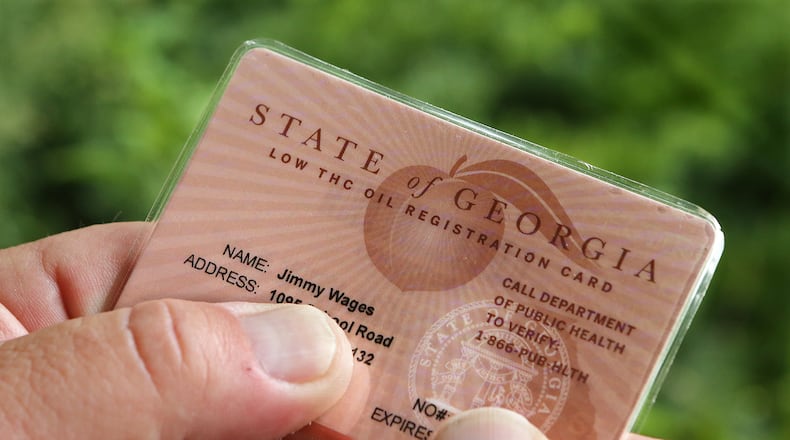State law enforcement officials said Wednesday that any expansion of medical marijuana in Georgia will need extensive regulations to protect patients and to be sure the system isn't exploited.
GBI Director Vernon Keenan and others said if the state makes marijuana broadly available for medical reasons it should mirror federal pharmaceutical law that requires extensive testing and monitoring of controlled substances.
Keenan and leaders of the state sheriffs' association told members of a special commission studying the issue that doing otherwise will lead to abuse.
"There’s already standards in place from the Drug Enforcement Administration that regulate pharmacies," Keenan said, "and gives the elements for restrictions and way to do business. It would be my position why would we deviate from the DEA regulations already in place?"
Georgia lawmakers this year legalized the use of a particular kind of oil derived from marijuana by patients with a limited number of diseases. But patients accepted into the program must arrange their own way of obtaining the drug, which is not sold in Georgia. Many travel to other states and risk arrest for transporting the the oil back to Georgia.
The commission must present recommendations to Gov. Nathan Deal by the end of the year for a system to grow and distribute the drug in Georgia.
Using DEA standards, Keenan said, would work, but there's a drawback.
"Get ready, they’re very comprehensive," he said. "And expensive and time consuming, but if we’re going to provide access then it needs to be done through existing processes."
Terry Norris, executive director of the Georgia Sheriffs Association, said his members will want to be actively involved.
"The sheriffs will want a seat at the table, in making those decisions on how that is regulated," he said. "And they will want the ability to go in and look at these sites and have access to records at these sites and implement some state regulations on inventory control, waste control, who works there. All those issues that haven’t been thought of yet."
There are private solutions to some of those challenges, commission members learned. Cody Stifler, regional vice president of BioTrackTHC, said his company creates software specifically for the medical marijuana industry.
His company's software "empowers these governments with real time visibility of every plant and every gram," he said.
BioTrackTHC, based in Florida, can track the system from marijuana seed to retail sale, he said.
"Patients need to have the peace of mind to know the products they purchase are safe for consumption," Stifler said. "Business owners need a way to show themselves to be credible businesses with legitimate products."
About the Author

